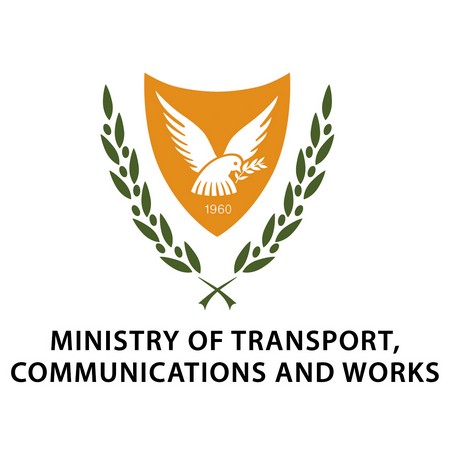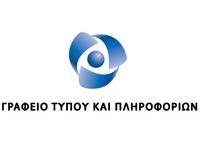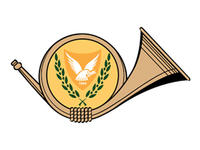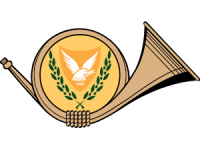Press Releases

15-07-2021 14:31
Address by the Minister of Transport, Communications and Works, Mr. Yiannis Karousos, on the Workshop “Virtual and Smart Cultural Tourism”
It is with great pleasure that I take part in this Virtual and Smart Cultural Tourism workshop organized by the UNESCO chair on Digital Cultural Heritage of the Cyprus University of Technology, on behalf of the Minister of Transport, Communications and Works, Mr Yiannis Karousos. Our Ministry is the predominant authority within the Republic of Cyprus for the adoption and accomplishment of developmental strategies in Cyprus; in order to achieve our goals and objectives, we collaborate with other stakeholders, from both the public and private sector, while one of our primary objectives is to build and expand synergies with private businesses and academic and research institutions. Within this context, tourism is also one of the key sectors that we focus on, in close collaboration with the Deputy Ministry of Tourism.
Within this broader context, cultural tourism, which is the focus of this workshop, is also one of our main goals, as it falls within the strategic planning of the Department of Antiquities; I believe it is common ground that it is the Department of Antiquities which oversees and controls the protection, management, research, preservation and promotion of the cultural heritage in Cyprus. For those who do not already know, the Department of Antiquities is under the Ministry of Transport, Communications and Works.
On this basis, according to the Antiquities Law, Cap. 31, the Department of Antiquities directs its efforts and activities towards protecting, conserving, and upgrading the archaeological sites, the monuments and museums throughout the island. In the last years, great emphasis is put on the creation of management studies and museum studies for the archaeological sites and the museums respectively, also in collaboration with internationally renowned institutions and experts. Cultural tourism is certainly tightly affiliated with this role of the Department of Antiquities, as it takes great concern in producing and disseminating activities aiming at the promotion of our cultural heritage, as well as in advancing visitation and producing visitor management strategies as part of these studies. It is perhaps important to note that as from the beginning of 2021, the Ministry, together with the Department of Antiquities, has initiated the policy of providing free access to all museums across Cyprus. This policy aims at developing the relationship between the society and our cultural heritage. Moreover, certain monuments are being provided, after request and permission, for weddings, thus, attracting more visitors within the realm of alternative forms of tourism. Given these novelties in policies, the end-results of the use of new technologies, aiming at advancing virtual and smart tourism, can undoubtedly act as promotors and increase visitation of archaeological sites, monuments and museums.
Furthermore, the Department of Antiquities takes part in institutions of the Council of Europe and in discussions of the European Commission, focusing on the development of strategies on cultural heritage, including its protection and promotion. Equally important is the collaboration with international organisations on heritage, such as UNESCO, ICCROM, ICOMOS and ICOM. On this basis, the Department of Antiquities is being directly informed on relevant advances and promotes cultural heritage at a local, European and international level. Moreover, it collaborates with academic and research institutions from Cyprus and abroad, and gives permission for the conduct of funded research for further advancing studies aiming at preserving and promoting cultural heritage.
To this end, the use of new technology is crucial for achieving state-of-the-art results for the utmost promotion of heritage, and for providing accessibility to the entire society, including people with disabilities. All these activities of course aim at expanding the visitors’ experience, and at allowing the presentation of vast archaeological data, which may ultimately increase the public interest in heritage, as well as raise awareness on the need to protect it. The first such activity, albeit not linked with smart technology, was the creation of Audio Guides for the Cyprus Museum in Nicosia. Moreover, by acknowledging the need to incorporate virtual and smart technologies in our strategic planning, the Department of Antiquities has recently proceeded with establishing a wireless wi-fi internet connection to all sites opened to the public. In cases, such as in the archaeological site of Nea Pafos, this connection has been reinforced with the establishment of antennas so as to allow a wider use of such necessary facilities. Similar technological advances will also be established in all museums, once the audio guides and other programmes currently being produced are implemented.
At this stage, it is important to underline that the Department employs these strategies for archaeological sites, monuments and museums across the island, including those belonging to the UNESCO World Heritage, as well as those that are less well-known. A major project aiming at advancing cultural tourism was initially put forward by UNESCO and National Geographic, funded by the European Union, in 2017, entitled “World Heritage Journeys”. Cyprus, and more specifically the Department of Antiquities together with the Deputy Ministry of Tourism, takes part in this initiative, which aims at advancing quality tourism based on world heritage sites from across Europe. Thus, an electronic platform has been created, which proposes four itineraries (the Romantic route, in which we take part with the World Heritage site of Pafos as the birthplace of Aphrodite, the Ancient route, the Royal, and the Underground route). What is significant about this project is the fact that it brings together all kinds of heritage, including natural, tangible and intangible, gastronomy, traditions, local industries etc. Most importantly, it has the ability to expand, also by adding virtual projects and smart elements, to make the information more attractive.
Another important project focusing on a UNESCO World Heritage site is the one conducted in collaboration with the Cyprus Institute, involving the ten Byzantine and Post-Byzantine churches on the Troodos Mountain. 3D reconstructions have been produced as part of this project, which will form the basis for further dissemination of the values represented by these unique world heritage monuments. For example, these new data may be used for proposing routes, in collaboration with the Office of the Commissioner for the Development of Mountain Communities on Troodos, for highlighting the significance of these monuments, within their wider and diverse settings.
Another research project in which the Department of Antiquities is a partner, directly linked with smart technology, is the EnterCY (ENhancing Tourism ExpeRience in CYprus) project. The proposal was first evaluated in the ranking of evaluations in the Priority Sector for Tourism under the "Integrated Projects", funded by the Research and Innovation Foundation at the national level, with a sponsorship of one million euros. The Frederick Research Center (FRC) is the coordinator of the project and the network of the nine collaborating organizations.
The project aims to stimulate one of the main pillars of the Cypriot economy, that of tourism, through Research, Technological Development and Innovation. It most importantly aims to develop an innovative platform for the promotion of Cyprus as a quality tourist destination. Specifically, emphasis is placed on promoting the rich history and cultural heritage of Cyprus, in combination with its natural beauty, as well as the variety of activities and entertainment it offers. This will be achieved by enhancing the experience of tourists before, during and after their visit to Cyprus, using cutting-edge Information and Communication Technologies (ICT). The platform will consist of a virtual reality online environment with space-time navigation and augmented reality for smart mobile devices, which will be supported by, among others, machine learning technologies, indoor geolocation techniques, big data management and immersed reality. Thus, tourists interested in visiting Cyprus will be informed about the rich cultural heritage of Cyprus, as well as about various activities and attractions, through virtual exploration, before their arrival and during their stay in Cyprus. By the end of July 2021, a test version of a new virtual platform and mobile app to promote Cyprus as a premium destination and attract new forms of tourism will be released. EnterCY promises to immerse the visitor in the Cyprus experience, before, during and after their visit, with access to the virtual reality (VR) web platform and the ability to download the augmented reality (AR) smartphone apps (both for Android and iOS) from various stores. Moreover, these ‘personalised’ journeys will include recommendations for archaeological sites, activities, venues, and services. The app will provide descriptive information about the history of Cyprus through narrations and audio guides. So far, around 70 sites, 15 videos, 50 storytelling and audio-guides, 150 images and 40 3D models have been included in the platform. Users are able to visit the VR platform and register, then set up a profile and explore Cyprus ‘virtually’. Users can also install the new app, plan a journey, receive personal recommendations, enjoy AR content and collect a personalised 360 video. It is important to note that the first part of the project, the virtual reality platform and the augmented reality smartphone app, will be released in the end of July 2021.
The consortium of the EnterCY project, which constitute the required, for these projects, quadruple Helix synergy, consists of the following: a) Research Centres: FRC (Coordinator) and the University of Cyprus, b) Policy makers: Department of Antiquities and Deputy Ministry of Tourism, c) Enterprises: Cyprus Research and Innovation Center (CYRIC), Silversky 3D and IMH, d) Organizations in the wider society: Cyprus Guides Association and Cyprus Travel Agents Association.
Another project aiming at advancing cultural heritage and tourism through the use of new technologies is the DigiArc project, i.e. a Digital Arc of Culture between Greece and Cyprus for the preservation and promotion of the Medieval Cultural Heritage in the Aegean and Cyprus. The Department of Antiquities takes part in this project together with the Cyprus University of Technology and the Ministry of Culture of Greece. The aim is to document medieval monuments, including towers and castles, in Rhodes and Cyprus, by the use of smart technologies, so as to attract more visitors in monuments which are less known to the wider public, through their digital representation.
I hope that following this brief presentation, it will have become apparent that the policies of the Ministry of Transport, Communications and Works regarding cultural tourism, together with the Department of Antiquities, bear tangible results through important actions, activities, projects and synergies. It is our belief that through establishing strong networks and collaborations, and by the wise use of new technology, aiming at highlighting the aspects and heritage values that come forward by archaeological research, and not by mere assumption, on one hand, and by acknowledging the real needs and challenges on the other, we may advance cultural heritage and promote our heritage riches and values with clear economic and social benefits. To achieve such fruitful results, it is of course important to submit the outputs of such projects to the Department of Antiquities, so as these are directed for the better management, protection and promotion of the cultural heritage of our island.
I thank you for this invitation and we look forward to establishing further synergies, aiming at further developing quality cultural tourism and the socio-economic facets of Cyprus, as a whole.
(Note: The Address was read, on behalf of the Minister, by the Permanent Secretary of the Ministry of Transport, Communications and Works, Mr. Stavros Michael)
(AT)
Relevant Press Releases

19-04-2024 16:42
PIO e-mail Αlerts service is suspended


20-03-2024 11:43
Acceptance of postal items to Israel has resumed



